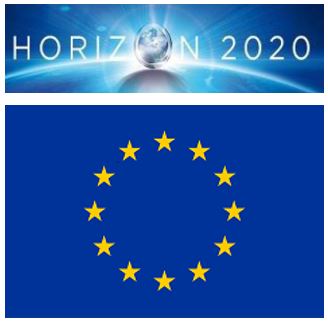MED1stMR: TRAIN – [SKILLS.RESILIENCE.PERFORMANCE] – SAVE LIVES
The Horizon 2020 research project MED1stMR transforms current training practices to better prepare medical first responders (MFR) for stressful and highly complex disaster situations. Innovative mixed reality (MR) technology is developed to combine real-world medical simulators with virtual environments.
Vienna, Austria (June 2021). A multidisciplinary, international consortium, coordinated by the AIT – Austrian Institute of Technology, Center for Technology Experience received a 7,8 million Horizon 2020 grant for the implementation of the MED1stMR project. The project will train medical first responders in MR environments to improve their situational awareness, resilience, and effective performance in medical emergencies in highly complex and unpredictable situations.
The project aims to transform European medical first responder training
Medical first responders (MFRs) are confronted with an increasing number of mass-casualty incidents with a large number of injured persons caused by human-made threats (e.g., terrorist attacks) or by natural disasters (e.g. landslides, floods). In such situations, medical first responders need to perform diagnosis, basic life support or other first aid to help stabilise victims and keep them alive or calm to wait for the arrival of further support. The proper evaluation of the situation itself, checking and monitoring the vital status of a large number of victims, and choosing the most appropriate strategy to further proceed with treatments are particular challenges.
Therefore, a pioneering mixed reality training system will be developed to address these needs and provide more realistic training that combines scenario-based training and medical training in one common training scenario and system at the same time. The MED1stMR training solution will increase confidence in action, enable faster reaction and improve coping strategies of medical first responders. Technical solutions beyond state of the art, framed by scientific research, will have a substantial impact on the future of medical training.
Innovative mixed-reality technology for higher resilience
The project will develop a new generation of MR training providing enhanced haptic feedback through the integration of high-fidelity patient simulation manikins and medical equipment into the virtual environment. This allows trainees to immerse in virtual scenarios and tactilely feel and visually perceive body, limbs and movements while examining and treating them. Thereby, MED1stMR offers a much deeper sensory experience bringing MR training even closer to reality. To enhance the effectiveness of MR training, a physiological signal and trainee behaviour feedback loop will be integrated for smart scenario control. In this respect, wearable technologies with body sensors will be developed allowing to monitor states and behaviour of MFR themselves during training. Together with a scientific model for effective performance in medical emergencies (EPME), this data will enable adapting training to the trainee’s needs, manually or by artificial intelligence-driven smart scenarios.
Helmut Schrom-Feiertag (AIT), coordinator of MED1stMR highlights the relevance of the project: “Proper evaluation of situations, checking and monitoring the vital states, and choosing the most appropriate strategy for proceeding with treatments are challenges in current practice of medical training. The current training abilities for such scenarios are limited. We aim to fill this gap with the MR solution developed in MED1stMR. We bring together the haptics of manikins featuring a realistic simulation of injuries with virtual disaster situations.”
The team of 19 European project partners from top-class research institutions, medical first responder organisations, business and technology companies is looking forward to a 3-years effective and fruitful collaboration in MED1stMR. The project successfully started with the virtual kick-off event in June 2021, where all partners presented their tasks and plans for the first months of the project.
Further information about the project:
European Commission – Research Website:
Communication & Press Contact:
USECON – The Usability Consultants GmbH
Codoscenter, Wollzeile 11, Etage 2
1010 Vienna, Austria
Mail: medfirst@usecon.com
Helmut Schrom-Feiertag
AIT – Austrian Institute of Technology, Center for Technology Experience
Giefinggasse 4, 1210 Vienna
Tel: +43 50550-6659 Mail: helmut.schrom-feiertag@ait.ac.atShort Facts MED1stMR
MED1stMR: TRAIN – [SKILLS.RESILIENCE.PERFORMANCE] – SAVE LIVES
The project MED1stMR aims to better prepare medical first responders for stressful and highly complex disaster situations by developing an advanced mixed-reality (MR) medical training solution with haptic feedback for enhanced realism. The goal is to train medical first responders (MFR) to improve situational awareness, resilience, and effective performance.
Total cost: 7,8 million Euro; duration: 36 months
Project partners
- AIT – Austrian Institute of Technology GmbH – Center for Technology Experience
- Ruprechts-Karls-Universität Heidelberg
- Umeå University
- Universität Bern
- Montanuniversität Leoben – Department Zentrum am Berg
- Refense AG
- Plux – Wireless Biosignals S.A.
- D2D Holding BV
- IDENER SCIENTIFIC COMPUTING
- Usecon – The Usability Consultants GmbH
- Mindconsole Gmbh
- Simcampus Zentrum GmbH
- Hellenic Rescue Team
- Johanniter Österreich
- Servicio Madrileno De Salud
- Universitatsklinikum Heidelberg
- Region Jämtland Härjedalen
- Johanniter International
- Campus Vesta
This project has received funding from the European Union’s Horizon 2020 Research and Innovation Programme under grant agreement No 101021775. The content reflects only the consortium’s view. Research Executive Agency and European Commission is not liable for any use that may be made of the information contained herein. |

